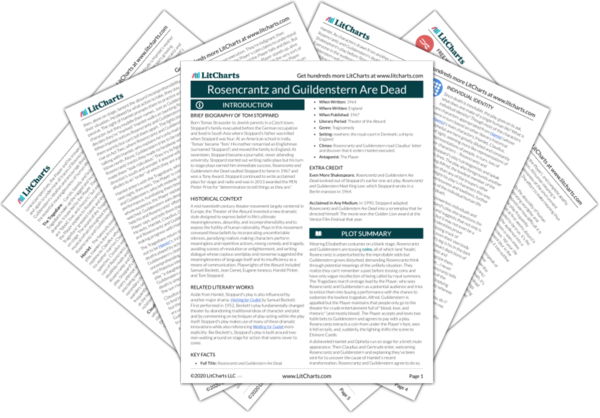"Immediately" the entire stage lights up and reveals the corpses of
Claudius,
Gertrude,
Laertes, and
Hamlet sprawled in court as in the last scene of
Hamlet. The corpses are in the same positions that the
Tragedians' bodies were when they were playing dead.
Horatio holds Hamlet while
Fortinbras stands by with
two ambassadors from England. Speaking actual lines from
Hamlet, one ambassador regrets having come too late to report to Claudius that, as ordered, "Rosencrantz and Guildenstern are dead." Horatio replies that Claudius never ordered their deaths. Horatio calls for "these bodies high on stage be placed to the view" and announces that he'll recount the events that brought this bloodbath about: "so shall you hear of carnal, bloody and unnatural acts," he says, "of deaths put on by cunning and forced cause, and, in this upshot, purposes mistook fallen on the inventors' heads." As Horatio speaks, the lights fade out and the play is overtaken by dark and music.
